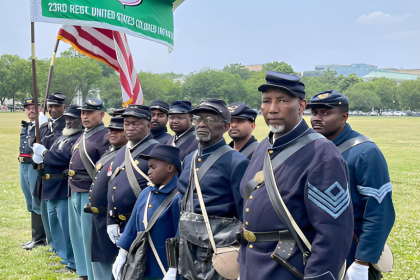
WASHINGTON, D.C. — Today, the National Council of Negro Women (NCNW) announced that president and CEO Shavon Arline-Bradley will deliver remarks during the 60th anniversary of the March on Washington at the Lincoln Memorial in Washington, D.C., Aug. 26 at 11:00 a.m. The event, which is co-sponsored by NCNW and co-chaired by the National Action Network and the Drum Major Institute, marks the 60th anniversary of the 1963 March on Washington.
“It is an honor to be invited to speak during the 60th Anniversary of the March on Washington and a full-circle moment for NCNW,” said Rev. Arline-Bradley. “Dr. Dorothy Height, president emerita of NCNW, played a pivotal role in mobilizing thousands of marchers and organizing the 1963 march. Yet, because she was a woman, she was not afforded the opportunity to speak. Understanding that history, it is not lost on me that I not only represent Dr. Height and NCNW in this moment, but I also have a responsibility to play my part in elevating the voices of Black women, continuing the legacy of the 1963 organizers and reclaiming the rights we have already gained over decades of activism.”
Rev. Arline-Bradley was selected by the NCNW board of directors to become the first President and CEO of the organization. She began her tenure in January 2023, elevating NCNW’s profile through her initiative to mobilize people, advance policy, revitalize programming, and solidify infrastructure. Since joining NCNW, she has arranged relief efforts for victims of tornados impacting communities in Mississippi in early 2023, organized the DC Rally for the Freedom to Learn campaign, collaborated with various civil rights and women’s organizations to advocate for fair practices as Medicaid entered the unwinding process, and hosted online events to highlight the impacts of recent Supreme Court rulings.
NCNW has embraced the theme for the 60th anniversary of the March on Washington, “Not a Commemoration but a Continuation,” as the 88- year-old civil rights organization continues to advocate for voting rights, pay equity, reproductive rights and the freedom to teach and learn Black history.















